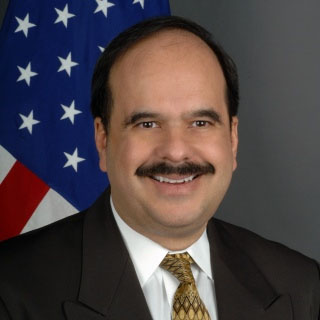The long overdue official US recognition of the Armenian Genocide by the Biden administration is a very positive event. The administration deserves full credit for taking a step that past American presidents contemplated and yet hesitated to do. Despite agitated breast-beating by the Erdogan regime, the step is merely symbolic, richly symbolic and significant without a doubt. But Armenians are not going to return to their Anatolian homelands; their churches are not going to be rebuilt there. New generations of Turkish citizens are not, sadly, going to be reared to respect Anatolia’s pluralistic past. If anything, the opposite will happen, and the regime will be even more xenophobic and anti-American than it has already been for years.
Turkey can respond in many ways, both now and in the future. In 1985, Turkey’s parliament had to be talked out of launching a debate on US genocide against Black and Native Americans after the US Congress began considering an Armenian Genocide resolution. Given the current climate, such responses are likely to happen, at the very least. But this kind of mindset—pointing to past Western misdeeds in reaction to pointed modern criticism—is not new and not limited to Turkey.
In 2009, as the US charge d’affaires in Sudan, I walked out of a speech in Darfur by President Omar al-Bashir lambasting American crimes against Native Americans, at Hiroshima, and in Vietnam. Bashir was furious the International Criminal Court had just indicted him for genocide, war crimes, and crimes against humanity. He lashed out and blamed the Americans even though the US had historically not been a supporter of the ICC.
The odd thing about Bashir and Erdogan is how little they understand the West, and particularly the United States. There is no condemnation of America, its history, and its actions that foreign regimes can make that Americans did not make first, still make, and made more convincingly. When it comes to guilt and self-recrimination, the West—Western Europe and especially Anglo-Americans—have the market cornered. Seminal nineteenth-century American writers such as James Fenimore Cooper idealized the “Noble Red Man” even as the dispossession of Native Americans had decades to go. Native Americans were positive American symbols in the same century when the Fourteenth Amendment gave voting rights to former slaves while denying them to American Indians. This thread, of honoring native peoples while treating them badly, runs through American history. Critical views of America’s past by Americans, from Mari Sandoz’s Crazy Horse to Dee Brown’s Bury My Heart at Wounded Knee were both abundant and influential.
If anything, the recent rise of a now seemingly dominant Leftist ideological critique of America—from Columbus to 1619 to George Floyd—is more sweeping than past criticism and far more damning than anything that any Middle Eastern dictator and his media jackals could dream of. What America is doing to itself now in terms of demonizing propaganda transcends the wildest dreams of Russian and Chinese and Iranian regime agitators. In 2020–21 America, statues and memorials to one of the greatest of her leaders, Abraham Lincoln, have come down because the Great Emancipator, busy with saving the Union and freeing the slaves, was judged to have been too cruel in his response to the 1862 Dakota War occurring on the distant Minnesota frontier. Teddy Roosevelt, no killer of Indians or keeper of slaves, had his statue removed in New York City because he was portrayed on horseback next to statues of a standing Native American and African.
I believe self-reflection is good in both nations and in individuals and can be a source of strength. History is complicated and should not be whitewashed or sanitized. It needs to be engaged with and understood with all its shadings, subtleties, and contradictions. In 1913 Turkey, the Ottoman foreign minister was an Armenian Christian; two years later, Talaat Pasha and his collaborators launched the Armenian Genocide. Some self-reflection and introspection would do Turkey much good, but such steps could also weaken powerful symbols and tropes that have proven so useful for political and religious mobilization, particularly for Erdogan.
But if countries from Turkey to Iran, Russia, and China today idealize themselves, the West, particularly the United States, has chosen a fateful, interesting path never before seen in human experience. Post-war Germany and Japan certainly apologized and made reparation for their actions in the Second World War but not for their existence as entities. Those so active today in the deconstruction of the old American national narrative of a flawed but great nation obviously intend to substitute a new narrative, still being built on the basis of racial and sexual politics, in its place. Can such a new creation actually inspire real devotion and patriotic sacrifice, or will loyalty and adhesion in America now reside in the tribe, political faction, and sub-group? How can you generate spirited passion for something that is to be despised like Old Glory?
If there is a danger in the historical denialism of the authoritarians, so is there in the progressive puritanism of America’s cultural elite. Our own fifth column within seems bent on a permanent revolution. This is an ideological revolt, a bastardized godless travesty of Christianity, or somebody’s caricature of Christianity, guilt and condemnation without mercy or redemption. In Virginia, the ideological search for equity now mandates the canceling of advanced mathematics courses for high school students. This is a scourging not limited to statues and the names of buildings but an ideological self-flagellation that will have real world applications.
Perhaps in the end, the challenge seems similar in both Turkey and America, but from opposite ends of a toxic spectrum: how to promote a national narrative that both engenders real pride and sincere devotion but is also generous and capacious enough for all, majorities and minorities, for past victims and currently marginalized populations.







 Sponsor a student for Christianity & National Security 2024
Sponsor a student for Christianity & National Security 2024